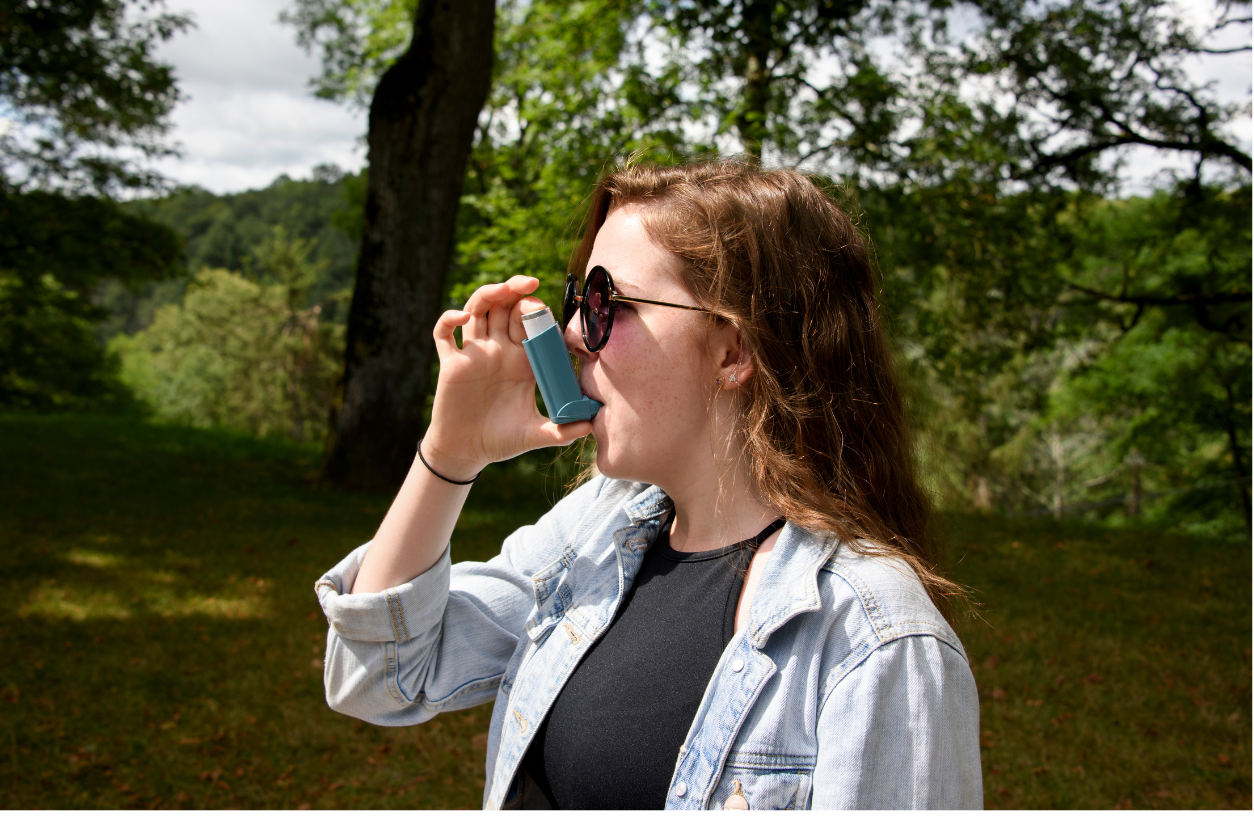Asthma is a condition that affects your airways, making it hard to breathe. If you have asthma, your airways can become inflamed and narrow, making it harder for air to move in and out of your lungs. Common triggers for asthma include exercise, pollen, cold air, or smoke. Asthma symptoms can come and go, but it’s important to have a plan to manage them when they do.
-
Coughing: Especially at night or early in the morning.
-
Wheezing: A whistling sound when you breathe.
-
Shortness of Breath: Feeling like you can’t get enough air.
-
Chest Tightness: A feeling like something is squeezing or sitting on your chest.
Managing asthma usually involves taking medication, like inhalers, and avoiding things that trigger your symptoms. There are two main types of inhalers.
-
Reliever Inhalers: Used when you have symptoms to quickly open up your airways.
-
Preventer Inhalers: Taken daily to reduce the risk of symptoms happening in the first place.
If you have asthma, it’s important to carry your inhaler with you and know what to do if your symptoms get worse. Your GP or school nurse can help you create an asthma action plan so you know what to do if you have an asthma attack.
-
Speak to your school nurse or GP: They can help you manage your asthma and make sure you have the right treatment.
-
Asthma UK: Offers advice and resources on managing asthma. Home – Asthma UK.
-
NHS Asthma Guide: Learn more about symptoms and treatments on the NHS website. Asthma – NHS.
